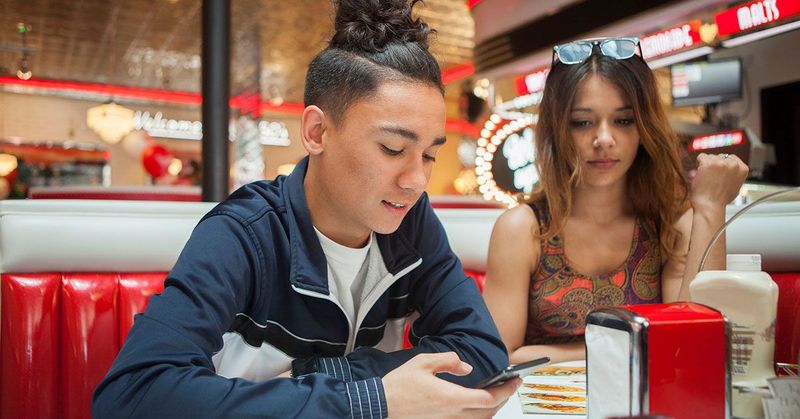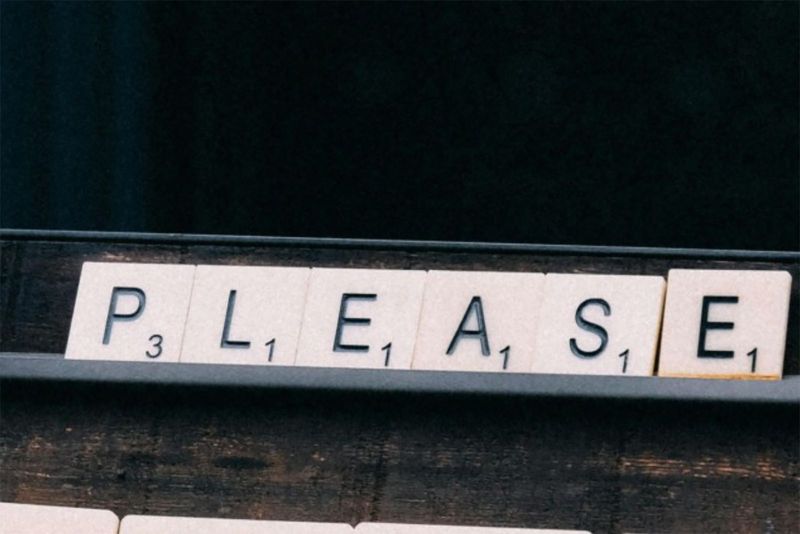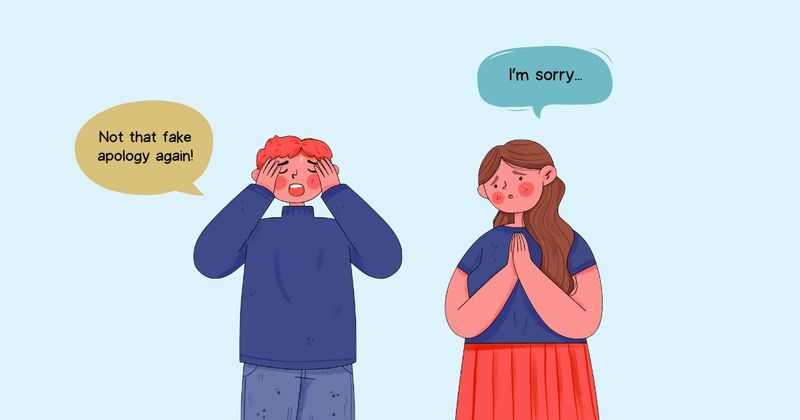You know those moments you replay in your mind hours after they happen? The ones where you wonder, “Did I just come off like a jerk?” Most of us aren’t out here trying to be rude. But some things we do—without thinking—can land harder than we ever intended.
This isn’t about shaming you or gatekeeping manners. It’s about finally naming the sneaky, everyday habits that send the wrong message.
Not because you’re a bad person, but because being more awake in the way we show up might just make life easier for everyone (including you).
1. Interrupting Mid-Sentence
Ever jumped in the second someone started telling a story? I mean, if we’re being honest, we all do this from time to time. Maybe you think it shows you’re engaged. Instead, it usually feels like you try to win the conversation—like your thoughts matter more.
The truth is, no one likes feeling steamrolled. Even if your intention is to share excitement or relate, cutting people off makes them feel invisible. With friends or coworkers, it quietly erodes trust and makes you the person folks avoid opening up to.
Here’s a well-established tought: listening isn’t just about waiting your turn. It’s about letting people finish, letting their words hang in the air for a beat. That pause? It’s where connection actually happens.
2. Always Checking Your Phone
You know the scene: you’re out for coffee, and someone’s thumb keeps flicking their phone under the table. Maybe you’re the one doing it. I’ve caught myself checking texts mid-chat, swearing it’s just for a second.
But those moments add up. Every glance away tells the person with you, “Something else is more important than you.” They notice—even when they pretend not to. It’s like a subtle cold shoulder that you never meant to throw.
There’s nothing wrong with needing to check in with the world, but when you’re with someone, really be with them. Put your phone face-down or leave it in your bag. That tiny act says, “You matter to me right now.”
3. Standing Too Close
Ever had someone in your space at the grocery checkout, practically breathing on your neck? It’s weirdly unsettling.
Personal space isn’t just a COVID thing; it’s how we make each other feel safe. Everyone has an invisible bubble. If you pop it, tension fills the air, whether anyone says it out loud or not.
It doesn’t mean you’re creepy—just maybe distracted. Step back, give folks room. Sometimes respect is measured in inches, not words. The relief on someone’s face when they get their space back? You’ll see it.
4. Forgetting Basic Courtesies
“Please” e "obrigado" aren’t just for kids. If you think people know you’re grateful, so it’s okay to skip saying it, think again. Nobody’s a mind reader, trust me.
For staff behind the counter or your partner at home, skipping basic courtesy is like leaving a door half-shut. It doesn’t take much—a small "obrigado" or a quick “please” can brighten someone’s hour.
You never know when those words are the only kindness someone hears all day. They don’t just grease the wheels of society; they acknowledge that people, not machines, make life happen. Use them like you mean it.
5. Overusing Sarcasm
I thought sarcasm made me funny, sharper, more interesting. Sometimes it does—when everyone’s on the same page. But it’s easy to misread the room, and what’s clever to you might be a jab to someone else.
Some folks don’t catch the joke, or they wonder if there’s a real edge beneath the laughter. Too much sarcasm can sound like you’re hiding real feelings or keeping people at arm’s length.
If you love dry humor, use it with care and clarity. Sprinkle, don’t pour. The best laughs come when everyone feels included, not when someone’s quietly nursing a bruise you didn’t see.
6. Talking Over Others
Have you ever been at a table where everyone’s vying for airtime? I’ve been on the receiving end of it. People would barrel through, thinking it was helping steer the conversation, but it just drowned out quieter voices. One of them was mine.
It’s a power move—sometimes accidental, sometimes not. People remember being silenced, even if you didn’t mean harm. The ones who get interrupted the most? Usually the ones with something different to say.
If you catch yourself talking over someone, pause and let them finish. This isn’t about shrinking yourself; it’s about making space for every voice at the table. The best stories surface when we stop trying to be the loudest.
7. Avoiding Eye Contact
I never realized how much trust was built in a glance until I kept breaking it. Avoiding eye contact can make you look disinterested or even dishonest, even if you’re just shy or tired.
For someone sharing something important, it feels like you’re not really there. It can shut them down or even make them question themselves. It’s a small disconnect that can grow into a bigger one over time.
Nobody needs to stare anyone down. Just try to meet someone’s eyes for a heartbeat—especially when it matters. That’s when walls come down and people feel seen.
8. Over-Apologizing
“Sorry, sorry, sorry.” I used to say it for bumping elbows, asking questions, even for existing too loudly. It sneaks out before you realize, but too many apologies make people uncomfortable.
It sounds like you’re unsure of your place, or asking for forgiveness when none is needed. Friends and coworkers might start worrying they’re always upsetting you, or that you don’t trust yourself.
Next time, try swapping “sorry” para “thanks for waiting” or just stay quiet. You’re allowed to take up space and make mistakes. Apologies have more meaning when you use them wisely.
9. Not Offering Help
Have you ever watched someone wrestle three bags and a coffee cup, but hesitated to offer your hand? Maybe you didn’t want to intrude, or you figured they had it handled.
But staying silent sometimes lands as indifference. People remember when you step in, and when you don’t. The smallest help—a door held, a bag lifted—can shift someone’s whole mood.
It’s not about being a hero. It’s about noticing, and acting. You don’t have to fix everything; just remind people they’re not alone in the mess.
10. Bragging (Even Casually)
Here’s a hard pill to swallow: even if you’re just sharing good news, it can sound like bragging if you never ask about others.
It’s not wrong to celebrate yourself, but pay attention to how much airtime you take up. When every conversation circles back to your wins, people grow resentful or tune out.
Ask about their day, or celebrating their moments too. Joy multiplies when it’s shared both ways—not just as a spotlight, but as a dance.
11. Not Acknowledging Invitations
Ever ignored a group text about brunch because you couldn’t decide if you wanted to go? I’ve done it, thinking silence was better than awkwardly saying no. Turns out, it’s worse.
When people invite you, it means you matter. Not replying leaves them hanging, unsure whether to make room for you or cross you off the list.
A quick “thanks for the invite—can’t make it this time” is kinder than ghosting. You don’t owe everyone your time, but you do owe a little respect for their effort.
12. Giving Unsolicited Advice
My husband has this “problem.” He thinks helping means fixing. Whenever I vented, he’d jump in with the answer—solving a problem I hadn’t ask to solve. In certain moments, it just made things worse.
Unsolicited advice can feel like criticism, even if you meant well. People usually want empathy, not a how-to guide. There’s a difference between “I hear you” e “Here’s what you should do.”
Instead, ask, “Do you want advice or just to vent?” That one question can save you. It saved my husband and our marriage. At times listening is the biggest gift you can give.
13. Being Chronically Late
Life gets busy, right? It’s harmless—only, it really isn’t. Repeated lateness says something deeper: “My time matters more than yours.”
People rearrange their schedules, hold off on eating, sit awkwardly waiting. It chips away at trust and patience, especially if you never acknowledge it.
If you struggle with punctuality, own up to it. Set alarms, plan less, do what it takes. Respect starts with showing up when you promised you would.
14. Not Listening Fully
Ever nodded through a story while your mind ran through your to-do list? I’ve caught myself zoning out mid-conversation and realizing I missed the point entirely.
People can tell when you’re only half there. It feels like you just wait for your turn to talk, instead of caring about what they’re saying. That stings, especially if they worked up the courage to share something vulnerable.
Bring yourself back if you catch yourself drifting. Ask a question, repeat what you heard. Even say that you zoned out and need the other person to repeat, if that’s the case. It’s better than continuing with daydreaming in the middle of conversation.
Listening—really listening—is one of the rarest gifts in a world full of noise. Cherish it.
15. Making Jokes at Someone’s Expense
We laugh to bond, but when the joke’s about someone in the room, the vibe shifts. I’ve been the punchline and the comic. Neither felt as good as I hoped.
What lands as playful to one can hit raw for another. You can’t always see the sore spots, and a “just kidding” doesn’t always fix what’s bruised. If anything, it makes it worse sometimes.
Don’t make people pay for the laughter. The sharpest humor is gentle, not at someone else’s expense. Everyone deserves to feel safe in the joke.
















